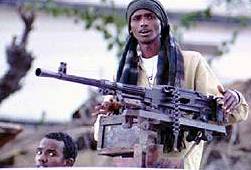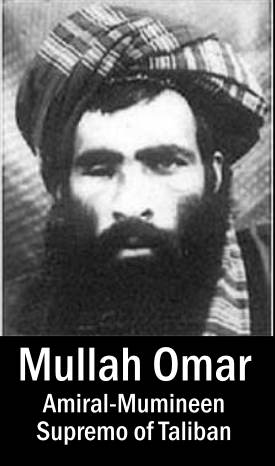[Yemen Post] Over the past decade U.S. drone strikes have killed between 1,800 and 3,100 people in Pakistain, along with hundreds more in drone attacks in Yemen and Somalia, as a result of the United States' efforts to combat al-Qaeda and its affiliates. The rise in strikes since the beginning of the B.O. regime, and the growing stridency of questions surrounding the legal, moral, and practical efficacy of the program, have led to a lively debate among the commentariat. This debate is indeed important, but it is also crucial to understand how the drone program has affected the jihadis, and how jihadis have deployed the issue of drones in their propaganda. This is a necessary part of gaining a wider understanding of whether the program is a worthwhile endeavor.
Surprisingly, one does not see much discussion of drones by al-Qaeda Central (AQC), or by the Taliban (though it is possible that individuals in these groups are talking more about this in face-to-face encounters than online). Al-Qaeda in the Arabian Peninsula (AQAP), on the other hand, has exploited the drone issue extensively in the newsletter put out by their front group, Ansar al-Shari'ah (AS). As a result, question of whether drones are drawing more individuals into the arms of AQAP has been raised frequently in the past year.
In the documents collected by Navy SEALs during their raid of the late Osama bin Laden
... who is now beyond all cares and woe...
's compound in Abbottabad
... A pleasant city located only 30 convenient miles from Islamabad. The city is noted for its nice weather and good schools. It is the site of Pakistain's military academy, which was within comfortable walking distance of the residence of the late Osama bin Laden....
, Pakistain last May, bin Laden nicknamed Pakistain's tribal areas the "circle of espionage" for the network of spies that helps identify targets and place tracking devices for the strikes. The issue of spies has become so prevalent that Abu Yahya al-Libi wrote a book in 2009 regarding rulings on how they should be treated and prosecuted once captured.
The fear of infiltrators has created an atmosphere of paranoia within the jihadi movement, and has led many of al-Qaeda's operatives in the Pak tribal areas to move to more urban areas like Bloody Karachi
...formerly the capital of Pakistain, now merely its most important port and financial center. It may be the largest city in the world, with a population of 18 million, most of whom hate each other and many of whom are armed and dangerous...
. In one of bin Laden's Abbottabad documents, he advises the "brothers" with "media exposure" to move "away from aircraft photography and bombardment." Bin Laden also suggested that individuals flee to Afghanistan's Kunar province
... which is right down the road from Chitral. Kunar is Haqqani country.....
, where he thought they would be safer from the spy networks that have supported the drone campaign.
In the same document that bin Laden suggested his associates move, he also warned that even if one is in a safer place, one should still be cognizant that spies are lurking. The drone danger has also forced the Taliban to think twice about which journalists they meet with. A local Taliban leader remarked to Pak journalist Pir Zubair Shah: "You never know who is a news hound and who is a spy." But even if drone strikes provoke a higher level of distrust of outsiders (which itself is a normal characteristic of a terrorist or bad turban group), it does not appear to have hindered the Taliban's ability to project power into Afghanistan over the past few years. Many individuals look to the Taliban's shadow shari'ah courts for solving disputes, and the Taliban has been collecting taxes at the local level.
Frequent drone strikes in northwest Pakistain have also degraded al-Qaeda's ability to train individuals over long periods of time. In the past, AQC could spend a month (if not longer) training an operative in bomb making. In some cases, such training lasts as little as a few days now. Abbreviated training is less effective. Faisal Shahzad, the failed Times Square bomber, received five days of training in the tribal areas with AQC's affiliate the Tehrik-e-Taliban Pakistain (TTP). This lack of training proved decisive when Shahzad's bomb malfunctioned and he was spotted acting suspiciously.
Similarly, AQAP has been forced to change the locations of their training camps. The move to more mountainous areas like Ibb and al-Daleh provinces came about because AQAP was exposed to Arclight airstrikes when they had been training in Radaa directorate. Like the Taliban, however, AQAP has still been able to plot large-scale attacks against the West - even if they have failed - as well as occupy towns locally. And although there have yet to be any extensive academic studies on the wider effects of the drones in Yemen, Patrick B. Johnston and Anoop Sarbahi concluded in a working paper that the drones in Pakistain have actually decreased suicide kabooms across the country.
Propaganda
Although AQC and the Taliban have been under severe drone pressure for the past several years, they have said little about the strikes in the propaganda they release. When eulogizing Abu al-Layth al-Libi in 2008 after he was killed in a drone attack, Mustafa Abu al-Yazid described the drones as cowardly, since the United States did not confront him on the battlefield, but rather in a manner of "treachery and betrayal." More recently, Ayman al- Zawahiri Zawahiri
... Formerly second in command of al-Qaeda, now the head cheese, occasionally described as the real brains of the outfit. Formerly the Mister Big of Egyptian Islamic Jihad. Bumped off Abdullah Azzam with a car boom in the course of one of their little disputes. Is thought to have composed bin Laden's fatwa entitled World Islamic Front Against Jews and Crusaders. Currently residing in the North Wazoo area. That is not a horn growing from the middle of his forehead, but a prayer bump, attesting to how devout he is...
called in a message directed toward Paks in March for them to rise up against the government and "compel them to stop drone strikes."
Unlike AQC and the Taliban, AQAP has only seen frequent drone attacks for the past year and a half, but AQAP has exploited the issue extensively in their media work. (It should be noted that the United States has also used cruise missiles in attacking AQAP and al-Shabaab
... the Islamic version of the old Somali warlord...
operatives. There have been claims that what have been reported as Yemeni Arclight airstrikes have really been drones, and vice versa). AQAP has been especially active in highlighting the achievements of its counter-spy networks. In February 2012, AQAP sentenced three spies - two Yemenis and a Saudi - to death in a shari'ah court in Ja'ar. They had allegedly been placing tracking devices on cars for drone targeting. One of the individuals was killed in Azzan by way of crucifixion while another was shot at point blank range in Shabwa as a circle of men cheered. The execution was shown in a video as part of AS' "Eyes on the Event" series. This was not only a message to the locals to deter them from becoming spies, but also a way for AQAP to show the United States and Soddy Arabia
...a kingdom taking up the bulk of the Arabian peninsula. Its primary economic activity involves exporting oil and soaking Islamic rubes on the annual hajj pilgrimage. The country supports a large number of princes in whatcha might call princely splendor. When the oil runs out the rest of the world is going to kick sand in their national face...
that they were bringing the war back to them.
In addition to highlighting civilian casualties and showing pictures of dead children, AQAP has used critical analysis of the drone program from individuals in the West to gain sympathy for their plight. In issue nineteen of Ansar al-Shari'ah's newsletter they write an exposé on Obama's "crusade." In it, AS points out the "signature strike" policy, which allows the United States to target individuals based on behavioral patterns without actually identifying the individual: "Hellfire missiles ... troll the skies of Yemen to kill ... in cold blood and without accountability, as usual!" In the past, Yemen expert Gregory Johnsen has pointed out that signature strikes pose the danger of targeting and killing individuals that are not members of or associated with AQAP. In issue three of the newsletter, AS also questions the United States' commitment to the rule of law in light of the killing of Anwar al-Awlaki
... Born in Las Cruces, New Mexico, zapped in Yemen, al-Awlaki was a dual citizen of the U.S. and Yemen. He was an Islamic holy man who was a trainer for al-Qaeda and its franchises. His sermons were attended by three of the 9/11 hijackers, by Fort Hood murderer Nidal Malik Hussein, and Undieboomer Umar Farouk Abdulmutallab. He was the first U.S. citizen ever placed on a CIA target list...
and his son Abdul Rahman in a U.S. drone strike "without charging them [Anwar and his son] with a single crime."
Some analysts believe there could be blowback from the drone program from AQAP, which might be encouraged to plan a Dire Revenge™ attack on the United States. AQAP hinted at this in the eulogy for Fahd al-Quso, who was killed in a drone strike in May this year: "war between us is not over and the days are pregnant [and] will give birth to something new."
While the jihad boy response to drone strikes in Yemen remains to be seen, there is scant evidence that drones strikes have been mobilizing AQC to conduct attacks in response. After Faisal Shahzad's Times Square plot failed, he told Sherlocks that one of his primary motivations had been the increased pace of drone strikes in the Pak tribal belt. Al-Qaeda leader Ilyas Kashmiri was also reportedly frustrated over the drone strikes in the tribal areas, leading him to plan an attack on the CEO of Lockheed Martin, according to the testimony of prior associate David Headley, a key operative in the 2008 Mumbai attacks. But besides Shahzad's failed attack and Kashmiri's aspirational plan drone strikes do not appear to be the primary reason why al-Qaeda, its branches, and its affiliates are plotting attacks against the United States.
During the B.O. regime, drone strikes have taken out many top al-Qaeda, AQAP, and Taliban leaders, and killed hundreds of mid-level fighters. The losses have pushed these jihad boy groups to establish counter-spy networks, as well as beef up their operational security. Al-Qaeda Central's ability to operate in Pakistain has been severely degraded. At the same time, the drone campaign does not appear to have had an appreciable impact on AQAP or the Taliban - both still show the ability to plan attacks against the United States (either into Afghanistan for the Taliban or against the American homeland for AQAP) and still have influence in their local areas of operation. Defeating these groups with drones is unlikely, but the strikes have at the very least created a nuisance for the jihad boys, as well as prevented more invasive military action that might have otherwise occurred. There are still lingering questions on whether or not the drones have played a significant role in radicalizing a new generation of fighters, but understanding how the drones are affecting and changing these groups can provide new perspective on a vexing challenge.
Aaron Y. Zelin is the Richard Borow Fellow in the Washington Institute for Near East Policy's Stein Program on Counterterrorism and Intelligence. |




 [DAWN] According to Taliban biographers,
[DAWN] According to Taliban biographers,  Zawahiri
Zawahiri


 Wazoo
Wazoo Al Qaeda confirmed on Tuesday that one of the group's most senior figures, veteran militant
Al Qaeda confirmed on Tuesday that one of the group's most senior figures, veteran militant 